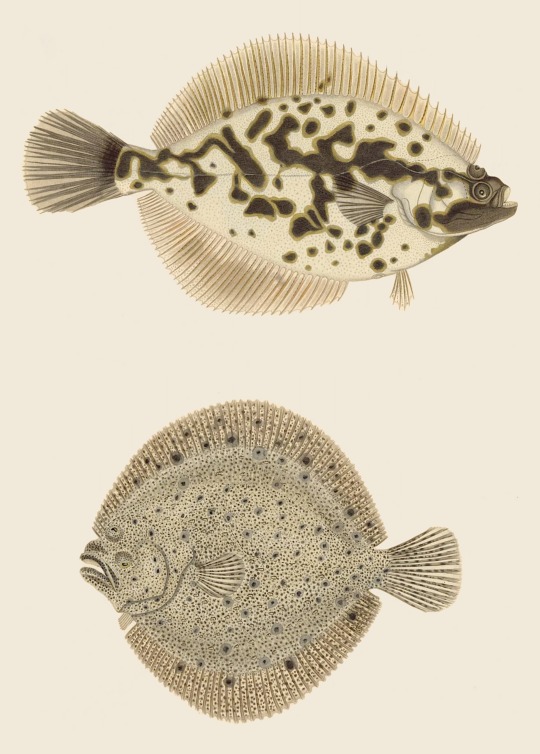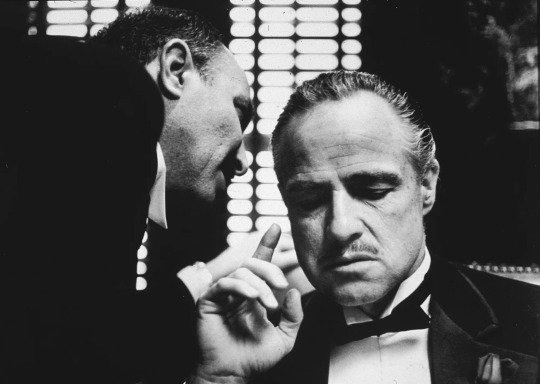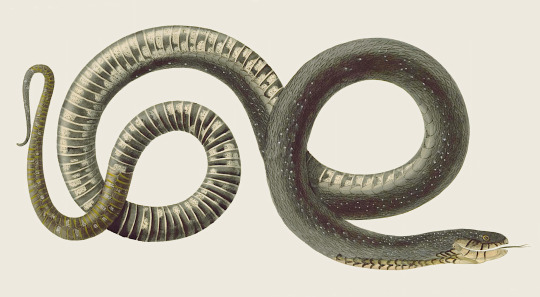#Valachi
Text

Warren K. Leffler, [Mafioso Joseph Valachi of the Genovese crime family…] (McClellan Committee), 27 September 1963.
Safety negative. Film width 35mm. Part of U.S. News & World Report Magazine Photograph Collection (Library of Congress).
#film photography#photography#film negatives#valachi#congress#library of congress#mafia#criminals#organized crime#legislative hearings#dc#Washington DC#history#1960s#1963#mafioso#Joseph valachi#genovese
0 notes
Photo

Voyage dans la Russie méridionale et la Crimée par la Hongrie, la Valachie et la Moldavie, Atlas d'histoire naturelle - Anatolii Demidov - 1841/1842 - via Internet Archive
506 notes
·
View notes
Text
In season 6's "Homie the Clown", when Homer gets kidnapped by the mob he mentions various different names in hopes of getting released, among these he mentions Joe Valachi, to which Louie responds "The same Joe Valachi who squealed to the Senate committee about organized crime?", Homer tries again with Benedict Arnold, Legs then responds "The same Benedict Arnold who plotted to surrender West Point to the hated British?"
Joseph Valachi was an American mobster who became notorious for being the first one to publicly acknowledge the existence of the Italian-American Mafia in 1963. The term cosa nostra ("our thing") is believed to have been popularized by him.
Benedict Arnold was an American-born British officer who famously attempted to treason American Patriot forces during the War of Independence by surrendering West Point post, New York. After the plot was discovered in September 1780 he was commissioned brigadier general of the British Army.
3 notes
·
View notes
Text

Charles Bronson-Jill Ireland-Lino Ventura "Los secretos de la Cosa Nostra" (The valachi papers) 1972, de Terence Young.
2 notes
·
View notes
Text
anyways who was going to tell me the valachi papers had a scene where joe and don vito literally lie down together in bed and talk shop because i need to see that happening with vito and leo. vito's soul in the palm of leo's hand, and leo considering what to do with it.
7 notes
·
View notes
Text
« La France prend l'Algérie à la Turquie, et presque chaque année l'Angleterre annexe une autre principauté indienne : rien de tout cela ne perturbe l'équilibre des forces ; mais lorsque la Russie occupe la Moldavie et la Valachie, ne serait-ce que temporairement, cela perturbe l'équilibre des forces. La France occupe Rome et y séjourne plusieurs années en temps de paix : ce n'est rien ; mais la Russie ne songe qu'à occuper Constantinople, et la paix de l'Europe est menacée ».
— Mikhail Pogodin, Mémorandum à Nicolas Ier (1853)

2 notes
·
View notes
Text
The Mafia in Popular Culture

From Al Capone and Vito Corleone to John Gotti and Tony Soprano, real-life and fictional mafiosos have captured the public imagination since the 1920s. Ruthless and violent, these men are nonetheless often seen to maintain their own personal brand of honor and decency. In this way, they are modern-day versions of the outlaw heroes of the Wild West, such as Jesse and Frank James or Billy the Kid. Gangsters were only a tiny percentage of the huge migration of Italians, primarily from the south of Italy, to America in the early 20th century. Still, “The Mafia” has become the primary pop culture expression of the Italian American identity–much to the dismay of many Italian Americans. This is due largely to the enduring influence of Francis Ford Coppola’s 1972 Oscar-winning smash hit film “The Godfather” (based on Mario Puzo’s novel) and its reinvention of the gangster movie genre.
As the era of Prohibition gave way to the Great Depression, the first wave of gangster movies mirrored the growing anger and frustration of many Americans at their worsening economic conditions. In movies like “Little Caesar” (1931) with Edward G. Robinson, “The Public Enemy” (1931) with Jimmy Cagney and “Scarface” (1932) with Paul Muni, the main characters–all Italian Americans, some based on real life mobsters such as Capone–suffered the consequences of their law-breaking, but many audiences still identified with their willingness to go outside the bounds of the traditional system to make a living. After 1942, gangsters largely disappeared from the screen, as Nazis and monsters took the place of mobsters as Hollywood’s preferred villains. This began to change after 1950, when a Senate committee set up to investigate organized crime began holding public hearings. Thanks to the new medium of television, millions of Americans watched the testimony of real-life mobsters like Frank Costello (or more accurately, they watched Costello’s shaky hands–the only part of him shown by the camera). In the early 1960s, Joseph Valachi, a soldier in the Luciano “family” organization, took a starring role in later televised hearings. It was Valachi who introduced the now-famous Mafia euphemism “La Cosa Nostra” (Our Thing), and his testimony revealed the evolution of Italian-American organized crime in America, especially in New York. “The Valachi Papers,” a book by Peter Maas, came out in 1969, the same year as the novel that would do more than any other to establish the mythology of the mafia in popular culture: Mario Puzo’s “The Godfather.”
Puzo’s novel tells the story of Sicilian immigrant Vito Corleone and the family and “business” he built in New York, including the struggles of his son Michael, who will succeed him as the new “Don.” Paramount Pictures bought the film rights to the novel, and studio head Robert Evans turned to the young Italian-American director Francis Ford Coppola to direct. (Coppola also co-wrote the screenplay, with Puzo.) With Marlon Brando (Don Corleone) and Al Pacino (Michael) leading a stellar cast, “The Godfather” gave a fuller, more authentic and more sympathetic glimpse into the Italian-American experience than had been seen on screen before, even as it framed that glimpse through the lens of organized crime. It also painted an undeniably romantic portrait of the mafioso as a man of contradiction, who was ruthless toward his enemy but devoted to his family and friends above all else. Unlike previous gangster films, “The Godfather” looked at the Mafia from the inside out, instead of taking the perspective of law enforcement or of “regular” society. In this way, “The Godfather” reinvented the gangster movie, just as it would influence all those that came after it. “The Godfather, Part II” (1974) was darker and more violent than the first film, but both were box office smashes and multiple Oscar winners. (“The Godfather, Part III,” released 16 years after “Part II,” failed to impress critics or audiences.) Over the next three decades, Hollywood never lost its fascination with the Mafia. A partial list of related films includes dramas like “The Untouchables” (1987), “Donnie Brasco” (1997) and especially Martin Scorsese’s “Goodfellas” (1990), which showed the underside of “The Godfather's romantic vision of Mafia life. Mafiosos also made their way into comedies: “Prizzi’s Honor” (1985), “Married to the Mob” (1988), “My Blue Heaven” (1990) and “Analyze This” (1999). From animated films to children’s cartoons, video games to “gangsta”-style hip-hop or rap music, the myth of the Mafia was everywhere, thanks in large part to the enduring legacy of “The Godfather.” On TV, of course, mobsters turned up regularly on crime shows like “NYPD Blue” and “Law and Order.” In 1999, however, came the debut of a cable TV show featuring a mafioso like none ever seen before.
In Tony Soprano, David Chase, the creator of the HBO series “The Sopranos” and an Italian American from New Jersey, managed to create a new kind of gangster. Chase moved the action from the traditional urban environment to the New Jersey suburbs, where Tony (James Gandolfini) visits a psychiatrist to deal with the stresses of work and family (including wife Carmela, mother Livia and two teenage kids). In the world of “The Sopranos,” gangsters like Tony are simply trying to achieve the same kind of affluent lifestyle as their fellow suburbanites, all while struggling with a sense that something is missing, that things aren’t like what they used to be. “The Sopranos” ran for six seasons from 1999 to 2004, won more than 20 Emmy Awards and was hailed by some critics as the greatest show in TV history. In acknowledgement of Chase’s debt to other works of Mafia-related popular culture, the series continually referenced those works, including “Public Enemy,” “Goodfellas” and, especially, “The Godfather.”
Like “The Godfather,” one of the most impressive aspects of “The Sopranos” was its richly detailed portrait of first- and second-generation Italian Americans, as seen through the experience of one extended family. The fact that both of those families were Mob families, however, means that many Italian Americans had mixed feelings toward these works. In 1970, the Italian American Civil Rights League held a rally to stop production of “The Godfather.” As for “The Sopranos,” the National Italian American Foundation has railed against the show as an offensive caricature, while organizers of New York City’s Columbus Day Parade refused to permit “Sopranos” cast members to march in the parade for several years running. Though pop culture’s fascination with the Mafia has undeniably fueled certain negative stereotypes about Italian Americans, acclaimed works like “The Godfather,” “Goodfellas,” and “The Sopranos” have also given many Italian Americans a sense of shared identity and experience. Despite its controversial nature, the myth of the Mafia–as created and nurtured by “The Godfather” and its many pop culture descendants–continues to enthrall the masses of Italian and non-Italians alike.
6 notes
·
View notes
Note
https://on.soundcloud.com/tUy4W
يارايئ يا ابن الرايئ انت❤ ..
مرضيتش ارد غير لما اخلصها ..
اسمع دي ..
3 notes
·
View notes
Note
Listen to Debby's Theme - Passion Flower - Francis Lai by Ahmed Gado 6 on #SoundCloud
https://soundcloud.com/ahmed-gado-6-1/debbys-theme-passion-flower-hotel-francis-lai?ref=clipboard&p=a&c=0&si=bf5e23b850664cc0997cf68b116ed325&utm_source=clipboard&utm_medium=text&utm_campaign=social_sharing
هسمعها ❤️
سمعتها تحفه في كمان؟ 😂
Listen to Trip In Mind, Nocturne 29 Mar - http://youtu.be/9uzIm67Nh50 by Fivos Valachis - YouTube on #SoundCloud
https://soundcloud.com/official-youtube-channel/trip-in-mind-nocturne-29-mar?ref=clipboard&p=a&c=0&si=77ab869492ea44b199d2c91890b4c10c&utm_source=clipboard&utm_medium=text&utm_campaign=social_sharing
اسمع دي يا انون
1 note
·
View note
Text
J'ai évalué Cosa Nostra - L'Affaire Valachi (1972) 7/10
J'ai évalué Cosa Nostra - L'Affaire Valachi (1972) 7/10
https://www.imdb.com/title/tt0068341/
0 notes
Text
Chicago TV Flashback - May 15-16, 1982
WLS channel 7 TV schedule for Saturday, May 15, 1982
Morning
7a - Super Friends
7:30a - Thundarr the Barbarian
8a - Goldie Gold and Action Jack
8:30a - Laverne & Shirley in the Army
9a - The Richie Rich/Scooby-Doo Show and Scrappy Too! (1 hour)
10a - Fonz and the Happy Days Gang
10:30a - Heathcliff & Marmaduke
11a - ABC Weekend Special
11:30p - American Bandstand (1 hour)
Afternoon
12:30p - Miss Teenage Black Scholarship Awards (1 hr 30 min)
2p - Sugar Ray Leonard's Golden Gloves
3p - Wide World of Sports (1 hour)
4p - ABC Sports Horse Racing: The 107th running of the Preakness Stakes at Pimlico (1 hour)
5p - Wide World of Sports (1 hour)
Evening
6p - Chicago: On Location
6:30p - Where Were You?
7p - The Love Boat (1 hour)
8p - The Love Boat (1 hour)
9p - Fantasy Island (1 hour)
10p - Eyewitness News at 10
10:30p - Weekend Report with Tom Jarriel
10:45p - Saturday Night Movie: The Valachi Papers (2 hrs, 20 min)
Early Sunday, May 16, 1982
1:05a - Late Night Movie: Bedlam (1 hr, 40 min)
A new episode of The Love Boat followed after its rerun.
Aloma's Ruler wins the 107th Preakness Stakes race, and with this win, this horse stopped Gato del Sol's chances on going for the Triple Crown.
0 notes
Photo

Voyage dans la Russie méridionale et la Crimée par la Hongrie, la Valachie et la Moldavie, Atlas d'histoire naturelle - Anatolii Demidov - 1841/1842 - via Internet Archive
773 notes
·
View notes
Text
Federico Garcia Lorca - Piano Solo - SoundCloud
Listen to Federico Garcia Lorca - Piano Solo by Fivos Valachis on #SoundCloud
0 notes
Text
« Dracula Untold » à découvrir sur le site de VOD
« Dracula Untold » est un film fantastique qui raconte comment le prince Vlad III de Valachie est devenu un vampire. Vous en saurez plus en visionnant ce long-métrage sur PlayVOD.

1 note
·
View note
Text
वालाची (बिरडा) आणि पावट्याचे शेंगाचे दाणे रेसिपी (Valachi And Pavtyache Shengache Dane Recipe In Marathi)
0 notes
Text
RELEASE BLITZ - Vengeance in Blood by Vi Carter & E.R. Whyte
Title: Vengeance in BloodDark Mafia RomanceSeries: Sons of the Mafia #1
Authors: Vi Carter & E.R. Whyte
Genre: Dark Mafia RomanceTrope: Arranged MarriageRelease Date: June 22, 2023
BLURBI married my enemy’s daughter.If I can’t make him pay for his sins… she will. Valachi, the name of a rival mafia family, was the last word on my mother’s dying lips.After years of careful deceit and planning,…

View On WordPress
#blog#books#dark mafia romance#dark romance#Give Me Books#give me books blog#givemebokspr#mafia#newbooks#NOWLIVE#release#Romance
0 notes